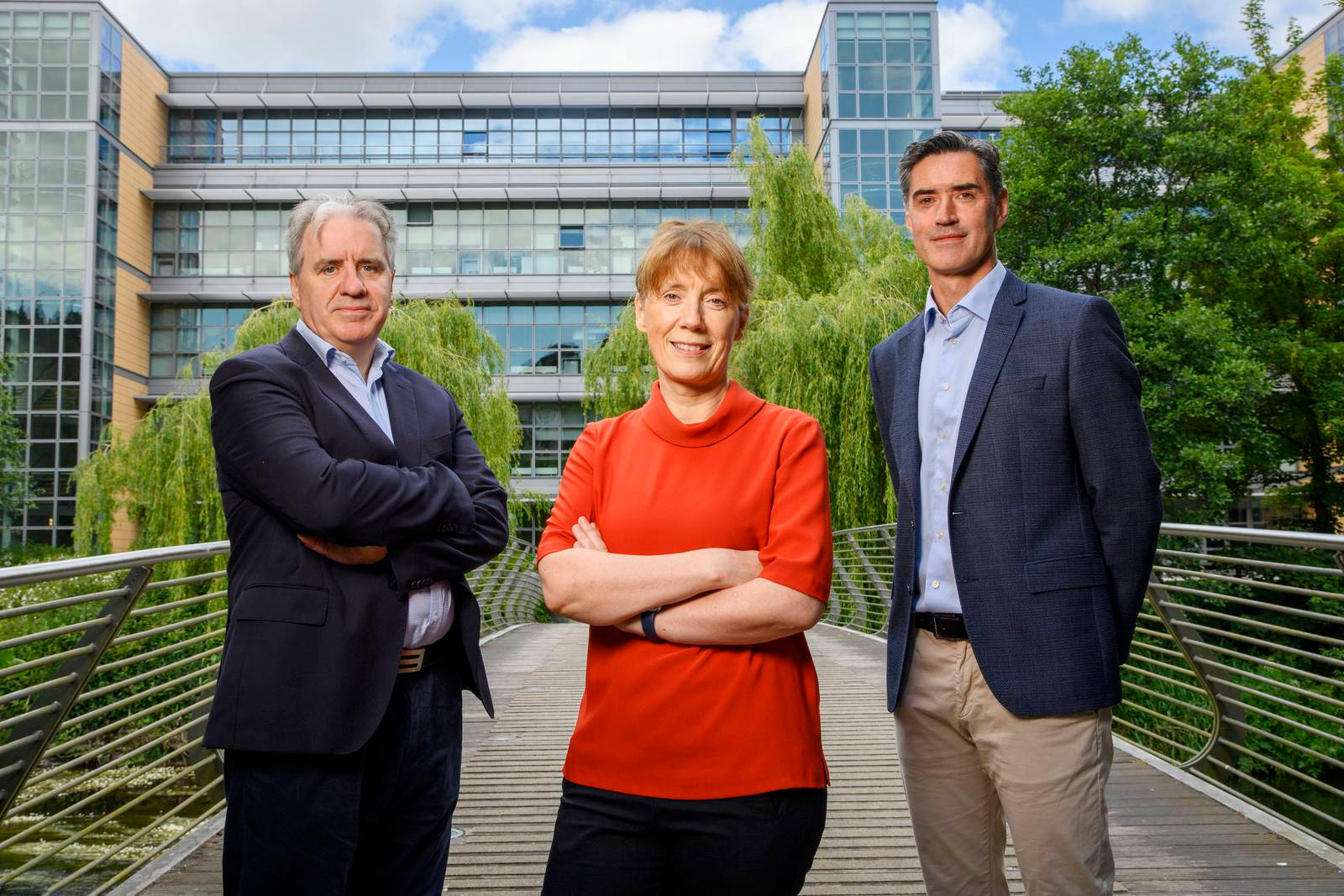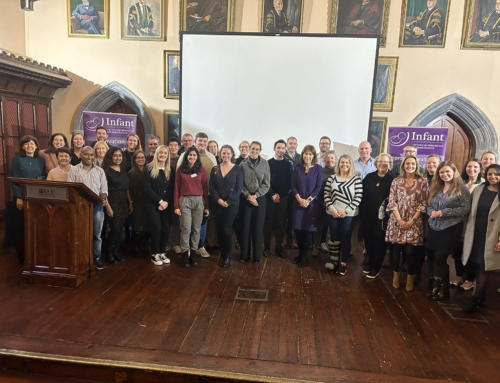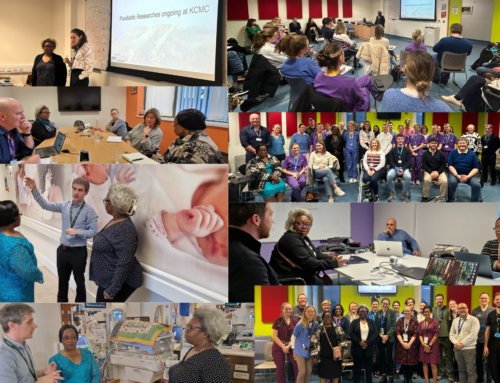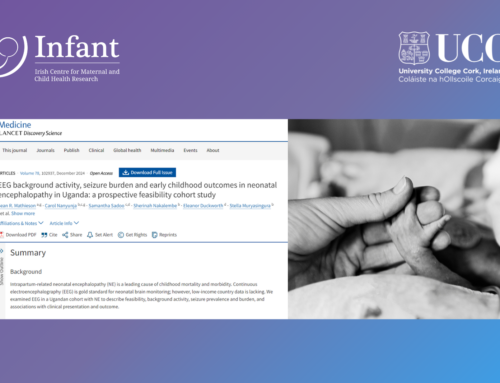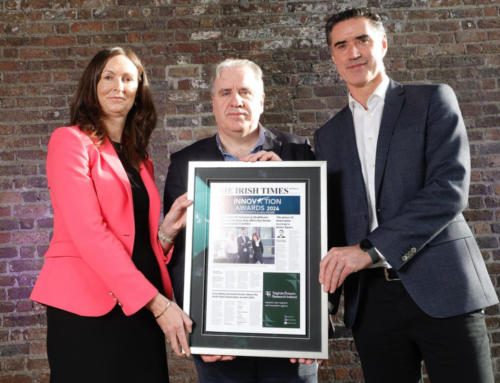- Newborn Brain Screener awarded €6.7m to develop a platform to detect abnormal brain activity in infants soon after birth.
- The technology screens all newborns for signs of brain injury in less than 15 minutes.
- Early detection and intervention are critical for improved outcomes and quality of life.
- €58.8 million was awarded to 12 new projects under the Disruptive Technology and Innovation Fund.
A new technology to screen newborns for brain injury has been awarded €6.7million in funding from the Disruptive Technology Innovation Fund (DTIF). The major investment will support scientists and engineers to advance brain health monitoring for newborn babies.
The Irish Centre for Maternal and Child Health Research (INFANT) at University College Cork with UCC spin-out CergenX and Evervault were awarded €6.7million for the Newborn Brain Screener (NBS) project which will develop a novel platform to detect abnormal brain activity in infants soon after birth through an automated AI assessment.
Minister for Enterprise, Trade and Employment, Simon Coveney TD, Minister for Further and Higher Education, Research, Innovation and Science, Simon Harris TD and the Minister of State for Trade Promotion, Digital and Company Regulation, Dara Calleary TD, announced funding of a €58.8 million to 12 new projects under the Disruptive Technology and Innovation Fund (DTIF).
Screening all newborns for signs of brain injury in less than 15 minutes
Over 8 million infants are born in Europe and the US each year, with an estimated 41,500 babies born with brain injury. While a newborn may show problems at birth, including difficulty breathing, depressed reflexes, seizures, or a subnormal level of consciousness, brain injuries are frequently clinically invisible and are often left undiagnosed.
Through a secure, automated AI assessment of 2 channel EEG, the CergenX Wave Device will allow newborns to be screened in less than 15 minutes by non-specialists. The results will alert healthcare professionals on the need for additional review, and potentially onward referral for specialist input, further diagnostic testing, and treatment when necessary.
Life-changing disruptive technology projects
Announcing the projects, the Minister for Enterprise, Trade and Employment, Simon Coveney TD said: “I am delighted to announce this significant new funding of almost €60m from the Disruptive Technologies Innovation Fund which underlines our commitment to advancing pioneering technology development in Ireland. The projects are diverse and some are potentially life-changing, such as providing a new minimally invasive and targeted treatment for metastatic lung cancer or using AI to detect abnormal brain activity in infants at birth.”
“These disruptive projects will also ensure that Ireland’s research and innovation ecosystem is well placed to capitalise on emerging growth sectors while delivering on net zero commitments, decarbonisation and digital transformation, in line with the objectives of the White Paper for Enterprise.”
This funding means that to date €364 million has been awarded to 103 projects across 6 DTIF Calls.
Simon Harris, Minister for Further and Higher Education, Research, Innovation and Science said:
“Impact 2030 positions Ireland to become a leader in research and innovation and a first-choice destination for researchers. The projects emerging from Government investment through this Fund are crucial to the continued growth of Ireland’s research and innovation sector. These collaborative projects are expanding the research agenda and are providing valuable learning opportunities for graduates from home and abroad. This supports us in driving excellence in our higher education institutions and providing a sustainable stream of skilled professionals with the expertise and knowledge needed to create and deliver emerging disruptive technologies.”
Investing in child health and wellbeing
Professor Geraldine Boylan, Director of the INFANT Research Centre at UCC, said: “We are thrilled the Newborn Brain Screener project has been chosen amongst the 12 DTIF projects. This partnership between INFANT, CergenX and Evervault combines world-class research and industry expertise to develop and deploy disruptive technology to help newborns. A huge thank you to the INFANT team and our partners at Cork University Maternity Hospital who have worked tirelessly over many years to reach this exciting milestone. I would also like to acknowledge the generosity of so many families who have participated in our research to date. This funding is a very welcome large investment in child health research by the Government and is an endorsement of our vision and ambitions for UCC Futures Children.”
Professor John Cryan, Vice President for Research and Innovation at UCC, welcomed the announcement: “Congratulations to INFANT, UCC spin-out company CergenX and industry partner Evervault Ltd. on receiving €6.7million to develop their technology to detect abnormal brain activity in infants soon after birth. This technology aligns with our ambitious UCC Futures programme in the area of Children, which is soon to be launched. The funding obtained from DTIF plays a key role in supporting the creation of life-changing technologies and securing the future of Ireland’s research and innovation ecosystem.”
Professor Helen Whelton, Head of College of Medicine and Health, UCC said: “Congratulations to CergenX, spin-out of INFANT, UCC, and their partner Evervault Ltd. Their pioneering technology, that detects abnormal brain activity in newborns, has secured significant DTIF funding. This inspiring research will improve outcomes and quality of life for patients, advancing brain health monitoring for infants. The award highlights the outstanding work at INFANT Research Centre, emphasizing the importance of partnerships in transforming lives through shared expertise and knowledge.
Photograph: Daragh Mc Sweeney/Provision


